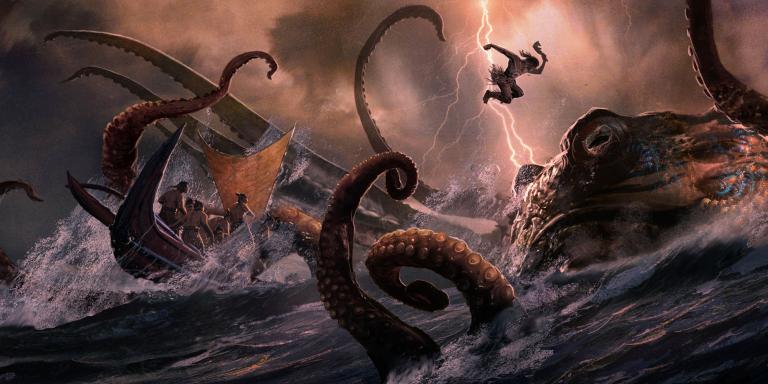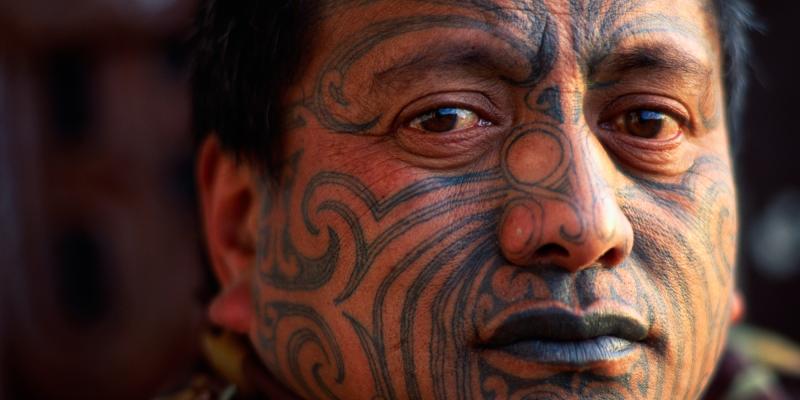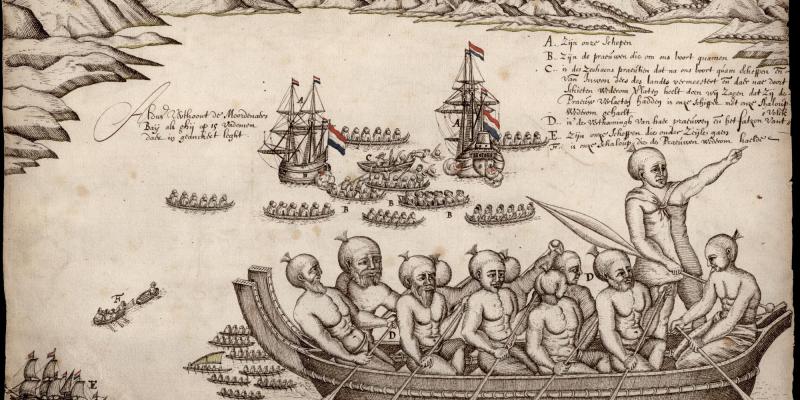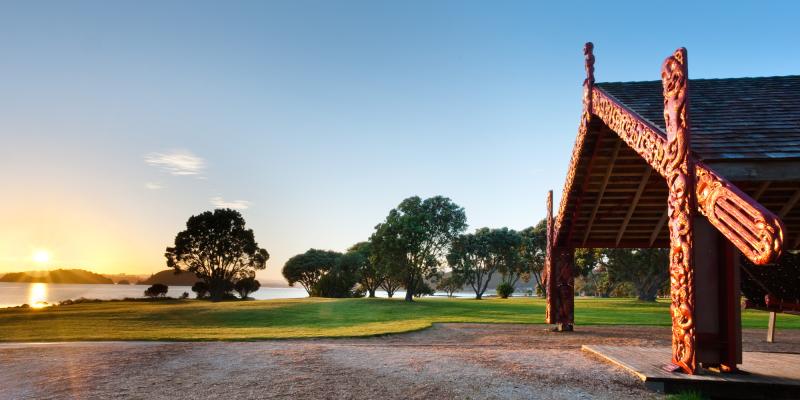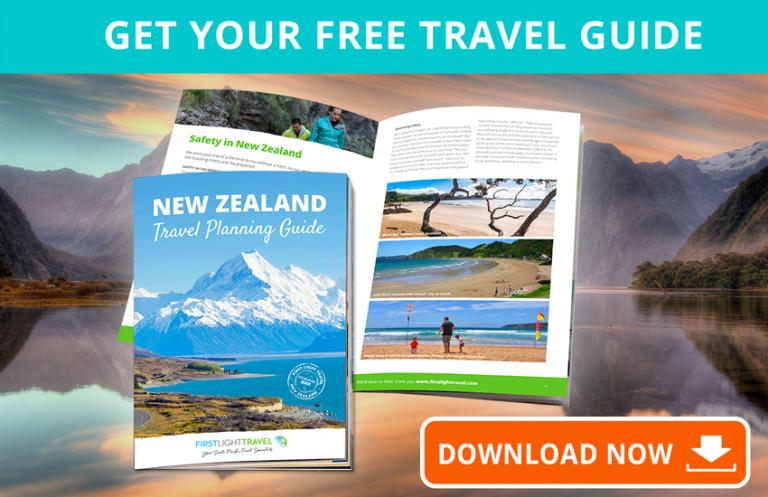In the beginning
Over 1000 years ago, Maori set out from Polynesia in their waka (canoes) to explore the sea around them. They found a place they named Aotearoa ‘The Land of the Long White Cloud’ – this land would later become New Zealand. They established deep relationships with the land, personifying natural features to create a history in which people and land are interwoven.
The legend is that a famous explorer called Kupe set off from his homeland in Hawaiiki and was the first person to land here. Where Hawaiki actually is a legend in itself – it’s never been found. There are strong similarities between Maori and other Pacific Island cultures, so Hawaiki is thought to have been part of Polynesia.
Māori
Maori make up 14% of our 4.5 million people. As the ‘tangata whenua’ (indigenous people) of New Zealand, Maori customs and history are a core part of New Zealand culture today. Oral storytelling is an important part of Maori culture. Culture and Maori whakapapa (genealogy) wasn’t traditionally written down. Instead it was passed down from generation to generation through song and speaking. There are many tales and legends about New Zealand to learn about while you’re here.
When you visit New Zealand, you’ll get a first-hand experience of what Maori people call ‘manaakitanga’ (hospitality). You might also see some Maori rituals like a powhiri (official welcoming dance ceremony). And, if you like rugby you’ve probably seen the All Blacks perform the haka (war dance) before a game. The haka is an old Maori custom that used to be performed before going into battle as an intimidation technique.
The Arrival of Europeans
The first person to find New Zealand was Dutch explorer, Abel Tasman, in1642. Our stunning Abel Tasman National Park is named after him. But the person who discovered and mapped out modern New Zealand was Captain James Cook in 1769. This paved the way for the British, who colonised the country.
The whalers, sealers and missionaries arrived first. They lived alongside Maori relatively happily. Then came the traders and pioneers, who had the mammoth task of getting the land cleared for farming. Unfortunately, the arrival of the British also bought guns and disease, resulting in a rapid decline of the Maori population.
The Treaty of Waitangi
Back in our early years New Zealand was a lawless nation. The capital of the time, Russell, (in the Bay of Islands) was very different to the idyllic place it is now. It was known as “the hell hole of the Pacific.”
A group of Maori tribes were tired of being cheated and stolen from by immigrants, so their chiefs began to lobby the British king to start protecting and recognizing their rights.
After much discussions, a treaty, known as the Treaty of Waitangi, was written in English and translated to Maori. The treaty gave the British crown rule over New Zealand. It made Maori and British equal citizens. And it let the Maori keep their titles and right to sell their land. The Treaty of Waitangi was signed on 6 February 1840 in the Waitangi Treaty Grounds by the Queen’s representatives and 500 Maori chiefs. Modern New Zealand was born.
While the Treaty is regarded as having had good intentions, there has been ongoing controversy since. Brutal land wars in the 1840s resulted in a heavy death toll for both British and Maori. Afterwards, most of the country’s most breath-taking scenery was taken by the British.
In 1975, the Waitangi Tribunal was created. Since then a number of crimes against Maori tribes have been compensated, while others are still under dispute. Waitangi is a special place to visit. With breath-taking views over the Bay of Islands, it’s a place steeped in history, culture, and should be on your New Zealand bucket list.
The Maori name for New Zealand is Aotearoa and means "Land of the long white cloud". Ao (cloud), tea (white), roa (long).
The English Text of the Treaty
Her Majesty Victoria Queen of the United Kingdom of Great Britain and Ireland regard ing with Her Royal Favor the Native Chiefs and Tribes of New Zealand and anxious to protect their just Rights and Property and to secure to them the enjoyment of Peace and Good Order has deemed it necessary in consequence of the great number of Her Majesty's Subjects who have already settled in New Zealand and the rapid extension of Emigration both from Europe and Australia which is still in progress to constitute and appoint a functionary properly authorized to treat with the Aborigines of New Zealand for the recognition of Her Majesty's Sovereign authority over the whole or any part of those islands - Her Majesty therefore being desirous to establish a settled form of Civil Government with a view to avert the evil consequences which must result from the absence of the necessary Laws and Institutions alike to the native. population and to Her subjects has been graciously pleased to empower and to authorise me William Hobson a Captain in Her Majesty's Royal Navy Consul and Lieutenant Governor of such parts ofN ew Zealand as may be or hereafter shall be ceded to Her Majesty to invite the confederated and independent Chiefs of New Zealand to concur in the following Articles and Conditions.
Article The First: The Chiefs of the Confederation of the United Tribes of New Zealand and the separate and independent Chiefs who have not become members of the Confederation cede to Her Majesty the Queen of England absolutely and without reservation all the rights and powers of So ver eignty which the said Confederation or Individual Chiefs respectively exerciseor possess, or may be supposed to exerciser to possess over their respective Territories as the sole Sovereigns there of.
Article The Second: Her Majesty the Queen of England confirms and guarantees to the Chiefs and Tribes of New Zealand and to the respective families and individuals thereof the full exclusive and undisturbed possession of their Lands and Estates Forests Fisheries and other properties which they may collectively or individually possess so long as it is their wish and desire to retain the same in their possession; but the Chiefs of the United Tribes and the individual Chiefs yield to Her Majesty the exclusive right of Pre-emption over such lands as the proprietors thereof may be disposed to alienate at such prices as may be agreed upon between the respective Proprietor and persons appointed by Her Majesty to treat with them in that behalf.
Article The Third: In consideration there of Her Majesty the Queen of England extends to the Natives of New Zealand Her royal protection and imparts to them all the Rights and Privileges of British Subject seceded to Her Majesty to invite the confederated and independent Chiefs of New Zealand to concur in the following Articles and Conditions.
[signed] W. HOBSON Lieutenant Governor.
Now therefore We the Chiefs of the Confederation of the United Tribes of New Zealand being assembled in Congress at Victoria in Waitangi and We the Separate and Independent Chiefs of New Zealand claiming authority over the Tribes and Territories which are specified after our respective names, having been made fully to understand the Provisions of the foregoing Treaty, accept and enter into the same in the full spirit and meaning thereof: in witness of which we have attached ,our signatures or marks at the places and the dates respectively specified. '
Done at Waitangi this Sixth day of February in the year of Our Lord One thousand eight hundred and forty.
[Signatures and marks]
